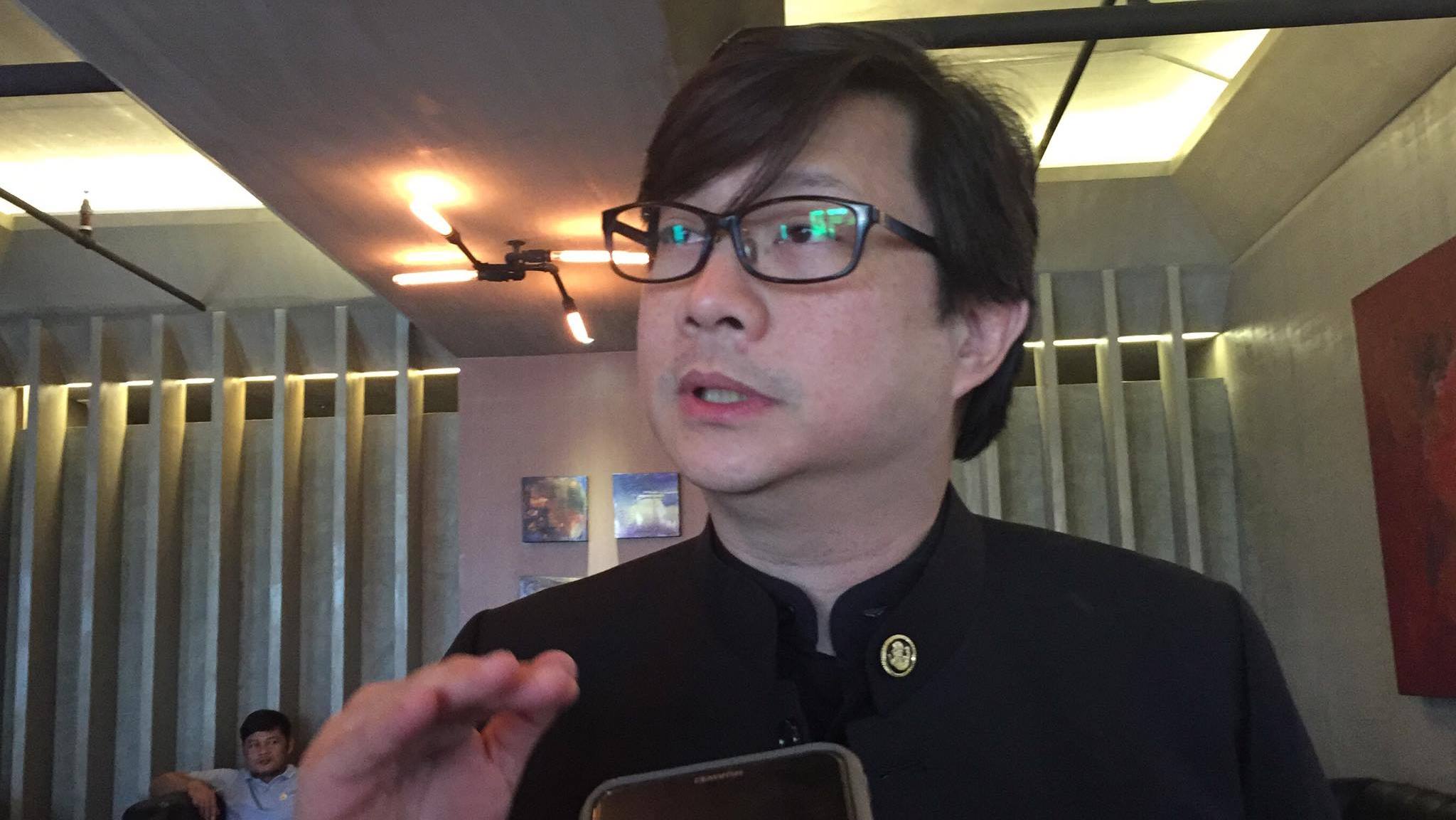
Presidential Assistant to the Visayas Secretary Michael Dino. | CDN Digital file photo
CEBU CITY, Philippines — Presidential Assistant for the Visayas Michael Lloyd Dino maintains that “there is no other way” to get through the coronavirus crisis here than the OPAV-initiated Project Balik Buhay (PBB).
OPAV’s PBB carries the strategic mass testing in the cities of Cebu, Lapu-Lapu, and Mandaue using rapid antibody-based test kits.
Dino said the strategic mass testing provides for a “wise, scientific, evidence-based, data-driven approach to help us rise above this pandemic.”
The health department, however, has since advised government agencies that rapid antibody tests cannot be used to outrightly diagnose coronavirus disease (COVID-19). A positive reading using the rapid test only means that there are specific antibodies present in one’s system, which may indicate infection.
Those who test positive in the rapid tests still need to undergo COVID-19 testing using the real-time polymerase chain reaction (rt-PCR), the DOH-recognized gold standard in diagnosing the viral infection.
“I would like to let the public know that PBB is not a concept which was born overnight. This concept was born out of long, tedious, intellectual, and high-level meetings and consultations with the experts in the field of epidemiology, business, and local governance which was done in series of weeks,” Dino said in an emailed statement.`
Dino, who stands as the convenor for the PBB, said he would take accountability for the project if it fails. He said he is optimistic that the project would be effective and valuable for the three cities which hold about 80 percent of Cebu’s economy.
READ: Economic-health balance sought in deciding Cebu HUCs shift to modified ECQ
During the launch of the PBB last April 29, 2020, Dino and the mayors of the tri-cities said the data from the PBB strategic mass testing will be among the basis to relax quarantine restrictions and let businesses gradually resume operations.
Watch: Launching of Project Balik Buhay in Cebu City, Mandaue City and Lapu-Lapu City
“Our partners – the business sector, DOH-7, LGUs, and local health experts – have thoroughly studied and examined all areas of the project’s moving parts to achieve a scientific, strategic, calibrated, evidence-based, and data-driven process to bring the livelihood of many Cebuanos, while preserving optimum health of everyone. OPAV and its partners left no item behind,” Dino said.
On Tuesday, May 12, Malacañang announced that Cebu City will remain under a modified ECQ until May 31 due to the high number of COVID-19 cases here while the cities of Mandaue and Lapu-Lapu are to downgrade to general community quarantine starting May 16.
However, Mandaue City Mayor Jonas Cortes and Lapu-Lapu City Mayor Junard Chan jointly appealed to the Interagency Task Force for the Management of Emerging Infectious Diseases (IATF-MEID) to let their cities remain under modified ECQ along with Cebu City.
READ: Cebu Tri-cities asks IATF to keep them under ECQ
In a joint statement, the tri-cities mayors said they wanted to complete the strategic mass testing. On the PBB timeline, they target to finish testing 10 percent of their household population by May 20.
“The most effective way to flatten the curve is to test, trace, and treat. We are still in the early stages of testing and tracing, and we maintain our stand from day one that until and unless our constituents are tested, we should not ease the restrictions,” the mayors said.
This Wednesday, May 13, OPAV is set to release the status of the massive rapid testing.
“There is no other way than Project Balik Buhay or PBB. There is no other way than a wise, scientific, evidence-based, data-driven approach to help us rise above this pandemic,” Dino said.
The strategic mass testing for the three cities began last May 6, however, several of the selected residents, mostly in Cebu City, initially refused to get tested.
The rapid antibody tests make use of blood samples and those administering the test need to secure consent first before they are allowed to get a blood sample from a person. / dcb